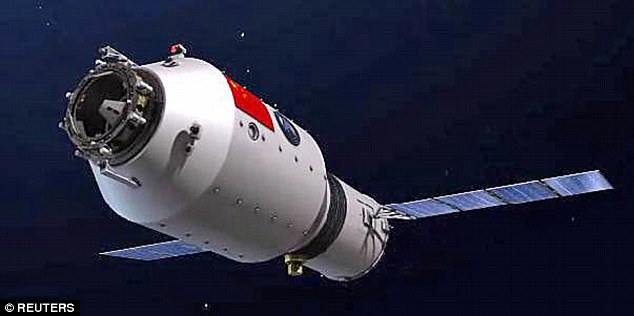China has begrudgingly admitted that the country’s first and only space station is most likely out of control — and is expected to crash into the Earth’s atmosphere next year.
The Tiangong-1 space station, launched in September 2011, means “heavenly palace” and was used to perform docking exercises in preparation for the country to build and launch a larger space complex by 2020. The station is also equipped with monitoring equipment and sensor payloads for space observation.
However, speculation over the past few months has led to rumors that the 8.5-ton Tiangong-1’s telemetry link to Earth operators has failed, which would result in an uncontrolled plummet to Earth in the next few years.
In a press conference last week, Wu Ping, deputy director of the manned space engineering office, admitted that the station will likely come back to Earth in the second half of 2017, according to local media outlet Xinhua News.
While the space lab has “comprehensively fulfilled its historical mission” to collect data, according to Wu, the station has now retired after making “important contributions” to China’s space aspirations.
“Based on our calculation and analysis, most parts of the space lab will burn up during falling,” the official said, adding that the Tiangong-1 is currently intact and is orbiting at a height of approximately 370 kilometers.
It is hoped any debris will fall into the ocean — otherwise, debris scattered over land masses could potentially cause some damage. If Chinese operators monitoring the station’s orbit believe that collisions will occur, they will release a forecast internationally closer to the time.
Speaking to The Guardian, Harvard astrophysicist Jonathan McDowell said the station would re-enter the Earth’s atmosphere “naturally,” and so is not possible to predict where debris will fall.
“You really can’t steer these things,” McDowell told the publication. “Even a couple of days before it re-enters we probably won’t know better than six or seven hours, plus or minus, when it’s going to come down. Not knowing when it’s going to come down translates as not knowing where it’s going to come down.”
Source:CDnet
